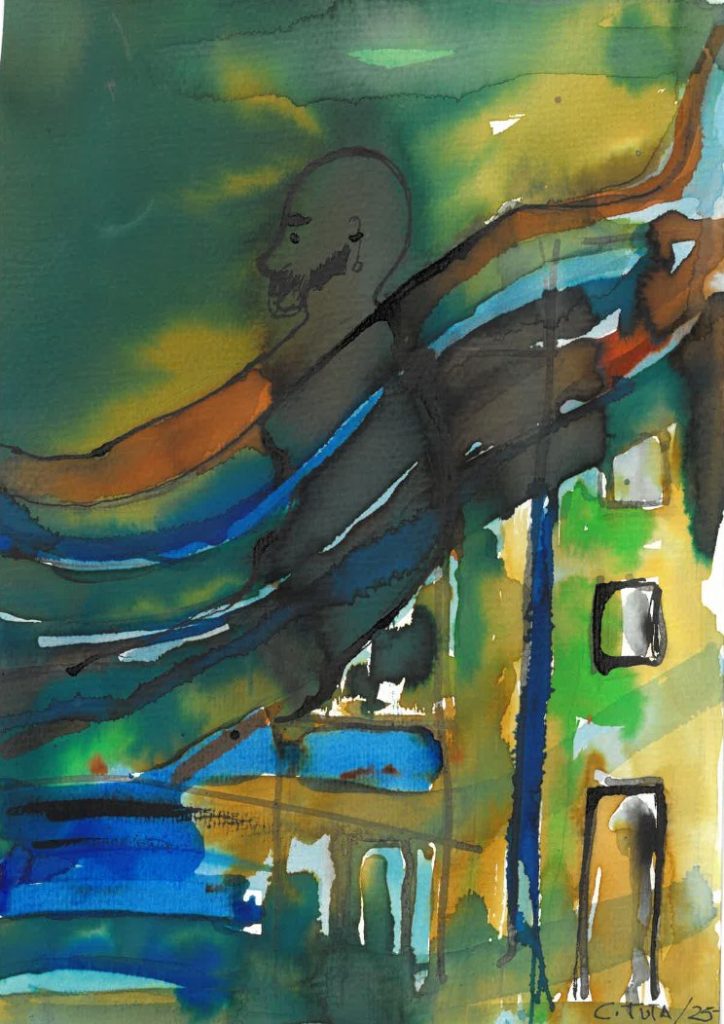Cláudia Tuta
In the southern part of the Iberian Massif, where the hills ripple like petrified waves and silence seeps into the stones, stands Alcoutim — a quiet village, yet as ancient as the earth’s secrets.
There, among steep slopes and hidden valleys, life flows to the rhythm of the Guadiana, the river that divides, but also unites, two Iberian peoples.
It is said that, many centuries ago, when the rocky pyrite hills still whispered stories to travelers, there lived a guardian.
His name was Pedro, an old shepherd who knew every stream as if they were veins of his own body.
The Vascão, the Cadavais, the Foupana, and the Odeleite stream — all spoke to him in watery murmurs when they ran freely in spring.
But times changed. Rain became scarce, even during the usual October to April season, and summers brought scorching heat, with temperatures exceeding 35 degrees.
The streams dried up, and with them, the memory of the land seemed to fade.
Pedro, now old and forgotten, continued to walk the trails, even when the ground cracked beneath his feet.
One evening, he heard a sound coming from the Vascão stream — not water, but a lament.
He followed it and found an ancient stone covered in moss, engraved with a symbol he had never seen before.
When he touched the stone, the sky darkened for a moment, and a cool breeze swept across the hills.
The streams, for a brief instant, flowed again.
Pedro then understood that the land was not forgotten — merely asleep, waiting for someone to listen.
Since that day, the people of Alcoutim say that on the hottest summer nights, when everything seems dry and still, a murmur can be heard from the valleys.
It is Pedro, the guardian, still walking among the hills, reminding the land that there is always hope, even in the driest of times.
Cláudia Tuta


